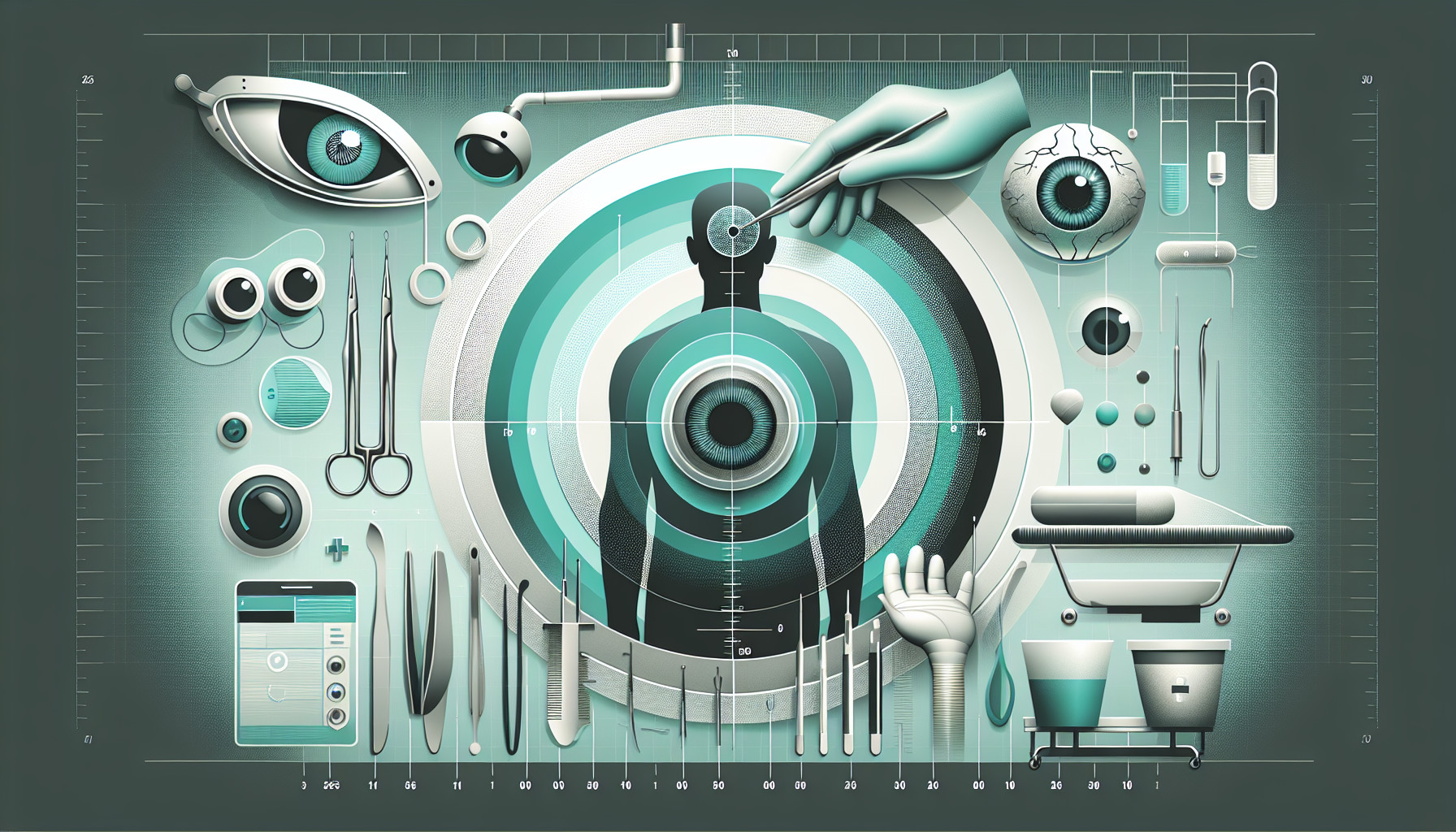Our Summary
This research paper provides a comprehensive look at a particular eye condition called rhegmatogenous retinal detachment (RRD). This condition is considered an eye emergency that requires immediate surgery. It is often caused by retinal tears, nearsightedness (myopia), or previous cataract surgery.
People who exhibit symptoms of another eye condition known as posterior vitreous detachment (which may include floaters, flashes, or a shadow in your visual field) should undergo an eye examination where the doctor dilates the pupils to check for retinal tears or detachment.
The paper also discusses other conditions that can be mistaken for RRD, such as tractive or exudative forms of retinal detachment or retinoschisis. These conditions also involve the retina, but are caused by different underlying issues.
FAQs
- What is rhegmatogenous retinal detachment and how is it treated?
- What are the main risk factors for rhegmatogenous retinal detachment?
- How is a retinal tear or retinal detachment diagnosed?
Doctor’s Tip
One helpful tip a doctor might tell a patient about retinal detachment surgery is to follow post-operative instructions carefully to ensure proper healing and minimize the risk of complications. This may include avoiding strenuous activities, taking prescribed medications as directed, attending follow-up appointments, and reporting any unusual symptoms or changes in vision to the doctor promptly. It is important to communicate openly with the doctor and ask any questions or concerns that may arise during the recovery process.
Suitable For
Patients who are typically recommended retinal detachment surgery are those who have been diagnosed with rhegmatogenous retinal detachment, which is a condition where the retina has become detached due to a tear or hole in the retina. Main risk factors for this condition include retinal tears, myopia, and previous cataract surgery.
Symptoms of rhegmatogenous retinal detachment include sudden onset of floaters, flashes of light, and a curtain-like shadow over the field of vision. If a patient presents with these symptoms, a thorough eye examination including indirect ophthalmoscopy under pupil dilatation is necessary to diagnose retinal tears or detachment.
It is important to differentiate rhegmatogenous retinal detachment from other forms of retinal detachment such as tractive or exudative forms, as well as retinoschisis. Once a diagnosis of rhegmatogenous retinal detachment is confirmed, immediate surgical treatment is typically recommended to prevent permanent vision loss.
Timeline
Before retinal detachment surgery:
- Patient may experience symptoms such as flashes of light, floaters, or a sudden increase in the number of floaters in their vision.
- Patient may also experience a shadow or curtain-like effect in their peripheral vision.
- Patient will undergo a thorough eye examination by an ophthalmologist to diagnose the retinal detachment and determine the best course of treatment.
- Patient may undergo imaging tests such as ultrasound or optical coherence tomography to assess the extent of the detachment.
After retinal detachment surgery:
- Patient will have a follow-up appointment with their ophthalmologist to monitor their recovery and ensure the success of the surgery.
- Patient may experience some discomfort or blurry vision in the days following the surgery.
- Patient will be advised to avoid strenuous activities and to refrain from rubbing their eyes to prevent complications.
- Patient may need to use eye drops or take oral medications to aid in the healing process.
- Patient may need to undergo additional surgeries or procedures if the initial surgery was not successful in fully repairing the detachment.
- Patient will be monitored regularly for any signs of complications or recurrence of the detachment.
What to Ask Your Doctor
- What are the risks and benefits of retinal detachment surgery?
- What is the success rate of the surgery?
- What is the recovery process like after retinal detachment surgery?
- How long will it take for my vision to improve after the surgery?
- Will I need any follow-up appointments or additional treatments after the surgery?
- Are there any lifestyle changes or precautions I should take after the surgery to prevent future retinal detachments?
- What are the signs and symptoms that I should watch out for that may indicate a complication after the surgery?
- How soon can I resume normal activities, such as driving or exercise, after the surgery?
- Are there any alternative treatment options to consider for retinal detachment?
- How experienced are you in performing retinal detachment surgery, and what is your success rate with this procedure?
Reference
Authors: Schick T, Heimann H, Schaub F. Journal: Klin Monbl Augenheilkd. 2020 Dec;237(12):1479-1491. doi: 10.1055/a-1243-1363. Epub 2020 Nov 18. PMID: 33207382
